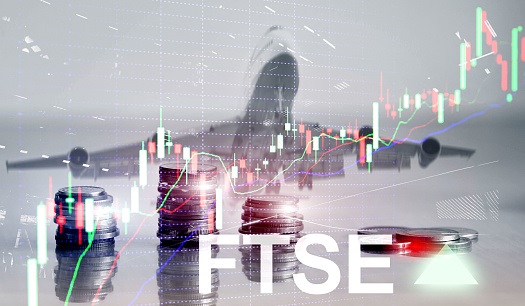The US Congress finally passed the bipartisan infrastructure investment package, which adds $550B in new money to the economy (and is estimated to add just shy of $300B to the national debt over a 10-year period, thus only increasing US national debt by a few percentage points). The US Congressional Budget Office (CBO) is currently reviewing the $1.75T social care and climate package being put forth by the Democrats, with some of the more moderate/fiscally conservative members of the party in the House and Senate wanting reassurance that the package is wasteful before voting in favour of it.
Chinese trade data for October was released over the weekend; Chinese exports saw stronger than expected YoY growth of 27.1% (exp. 24.5%) due to robust global demand, an easing domestic power crunch and modest supply chain improvements. The monthly trade surplus also reached a record of $84.54B, though this was in part driven by weaker than expected Chinese import growth of 20.6% YoY (exp. 25.0%), which analysts took as further evidence of slowing Chinese economic growth momentum. SEB conclude that “although Beijing has acted to increase coal production to reduce the risk of production stoppages and lack of heating for houses, zero tolerance for virus outbreaks, property crises, component shortages & geopolitical concerns continue to provide headwinds for growth”.
Equities
Global equities remain well supported at record levels. Analysts are citing last week’s news about the new, highly effective Covid-19 pill (which allegedly reduces hospitalisation by 90% in at-risk adults) from Pfizer, a strong US labour market report, the broadly dovish tone from central banks like the Fed and ECB (and the resultant drop in short and long-end yields) and the backdrop of a very strong earnings season as supportive to the global equity complex. Some are also citing news last Friday that Congress had finally managed to pass the Biden administration’s infrastructure package (which adds $550B in new money) as a positive for stocks.
Tesla CEO Elon Musk over the weekend posted a twitter poll asking followers whether he should sell a 10% stake of the company and pledged to abide by the result of the poll, amid the ongoing debate about how billionaires end up paying low taxes by avoiding a taxable event (like a stock sale). Around 58% of the over three million people who participated in the poll voted that he should sell. Tesla shares are down about 6% this morning, which is weighing a little on US index futures (Tesla makes up more than 5% of the Nasdaq 100 and just over 2.0% of the S&P 500), though equity analysts speaking to the financial press this morning were confident strong institutional demand would snap up the shares at only a modest discount.
Bonds
US yields are rising on Monday after a sharp drop at the end of last week, where investors at the time seemed to focus on the dovish central bank vibes from the Fed and ECB last week rather than on the signal of economic strength sent by last Friday’s US labour market report for October. 2-year yields are up 4bps to 0.44% and 10-year yields are up 4bps to 1.49%, the latter having bounced from under 1.45% last Friday. The move is primarily being driven by real yields, with the 10-yer TIPS yields up 4bps to back above -1.10%. European yields also dropped at the end of last week, with the move arguably led by downside in UK bond yields after the dovish BoE on Thursday. German 10-year yields are hanging out close to recent multi-week lows in the mid -0.20s%.
Commodities
Oil prices are higher this morning, with WTI up more than $1 on the day and back in the mid-$82.00s. Analysts are touting the passage of the US infrastructure package and the news that the Saudi’s had upped their OSP last week as positive for the crude oil complex. According to ANZ, the move by Aramco suggests demand remains strong as the OPEC producer and other major oil exporters keep the reins on supply. Prices are ignoring the Chinese trade data report which showed Chinese oil imports falling to a three-year low, as state-owned refiners withheld purchases due to higher prices, while independent refiners were restrained by limited quotas for bringing in crude.
FX
FX markets are contained ahead of central banks speak and US inflation data later in the week. The DXY is a tad lower on the day but remains well support above 94.00, EURUSD is supported above 1.1550, probably helped a little by a positive Eurozone Sentix Investor Confidence report this week that showed sentiment improve as expectations for supply chain problems to ease over the next six months grows. GBP is a little firmer as it pares some of last week’s underperformance. NZD is the best G10 currency on positive New Zealand reopening news. CHF is the worst, amid a lack of notable updates.
Day Ahead
A few central bank speakers will be worth watching today; ECB’s is up at 1400GMT, Fed Chair Powell speaks (on diversity, not policy) at 1530GMT, Fed’s Williams speaks at 1555GMT and Fed’s Bowman and BoE Governor Bailey at 1700GMT. Finally, Fed’s Evans speaks at 1850GMT. There is also a 3-year note auction at 1800GMT which will be watched by bond investors.
The main focus for investors for the remainder of the week will be US and Chinese inflation metrics on Wednesday, US JOLTs on Thursday and a healthy dose of further central bank speak. Market conditions ought to be tamer than last week, a week packed with central bank action and the US jobs report.




